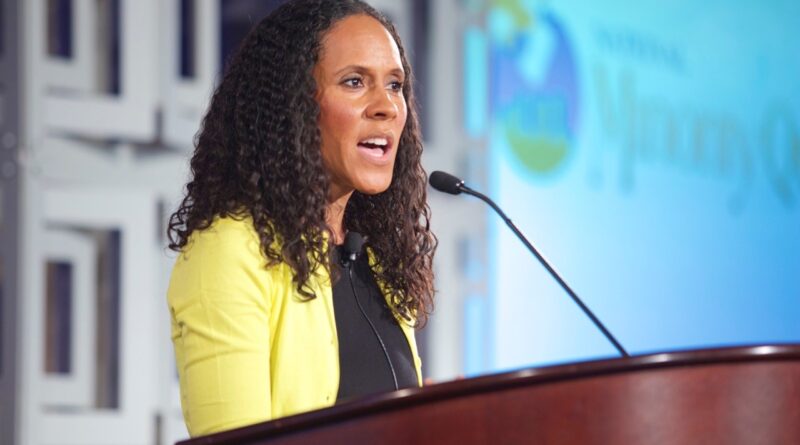National Mental Health Advocate Navigates How Black Americans Can Use 988 Crisis Lifeline

While the new 988 mental health hotline could be an essential resource for the Black community, it too comes with some challenges, says mental health leader and advocate Courtney Lang.
She points out that the crisis line could be pivotal because it diverts Blacks and others needing mental health support and related services to clinical professionals.
Lang says 988 allows you to call, text, or chat with the National Suicide Prevention Lifeline. She noted it’s a tremendous difference versus routing mental health calls to 911. Black Americans “are 20% more likely to have serious psychological distress than whites,” according to the National Institute on Minority Health and Health Disparities. According to this study, about 4.8 million Black Americans revealed having a mental illness.
“It is imperative for our nation to decriminalize mental health emergencies and commit to ensuring there is equity in care for all individuals, particularly the Black community that has disproportionately fallen as victims of law enforcement in matters that should never have been routed through the criminal justice system,” she says.
The U.S. started using the 988 crisis hotline on July 16, 2022. It gained $432 million in federal financing and backing from states. Yet, some state health officials question if they have enough money or staff to handle a glut of calls, including in Black communities.
Lang is the founder and principal of Langco + Partners, a public affairs and health justice firm. A staunch healthcare advocate and lawyer, Lang is also a board member of Mental Health America. She chairs its ad-hoc Committee on Anti-Racism, Equity, and Social Justice.
BLACK ENTERPRISE connected with Lang to get her take on 988 and mental health in the Black community.
As 988 kicks off, what are key challenges the Black community faces? What are some solutions?
The key challenges for the Black community is visibility and education on 988, making sure there is funding dedicated to amplifying awareness in the Black community. It is also making sure that individuals answering the line are trained and representative of that community. Crisis lines must not only be staffed with culturally appropriate teams but actually commit to being racially diverse. Black providers must be aligned with 988, and the settings of care must be appropriate.
What is Mental Health America’s role as it relates to 988?
While we do not work with the hotline directly, Langco + Partners is committed to amplifying the importance of suicide prevention and serving the long-term health justice needs of communities. We recognize that both advocacy and activism are needed to truly achieve equity in care. As a board member of Mental Health America, we are dedicated to empowering individuals with lived experience, trusted information, and amplifying awareness of 988.
What are you doing to protect the health of communities of color?
Reframing the national conversation on health equity to one of health justice and encouraging activism that joins healthcare and social change advocates as one. The pandemic is not over for Black America. In fact, a recent report by the Black Coalition Against COVID exposed how COVID rates for some populations have fallen, while Blacks have endured some of the highest rates of hospitalization in 2022. COVID-19 and racial injustice gave birth to a third pandemic of poverty and mental health trauma.
What resources can people turn to for mental health support?
Some mental health resources include the National Alliance on Mental Health, Mental Health America, The Steve Fund, and 988 Suicide and Crisis Lifeline. Other sites include the National Birth Equity Collaborative, March of Dimes, Black Women’s Health Imperative, and the American Hospital Association’s Equity Resources. People can also find free health and mental health care here.

